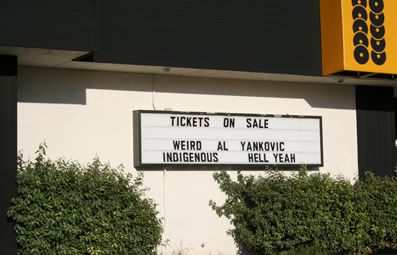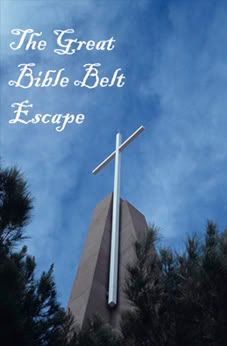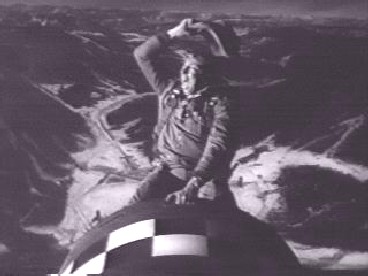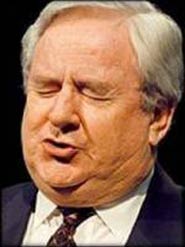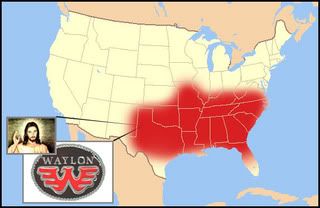Bill Moyers is chairman of the Schumann Center for Media and Democracy and an independent journalist with his own production company. This article is the commencement address Bill Moyers gave this year at Southern Methodist University.
Thank you for this honor and for inviting me to participate in this occasion. It would be a privilege to receive your honorary degree anytime, but I am especially pleased to be on the same platform with Marsh Terry, a beacon from “High on the Hilltop” for all these years now, and Bill Solomon, whose business and civic contributions are laced with a deep social conscience. I am humbled to be standing between two originals—one in literature, the humanities and the classroom, and the other in corporate governance and community service.
I am, after all, just a journalist. I make my living explaining things I don’t understand—a beachcomber on the shores of other people’s experience and wisdom. Furthermore, I know just where journalists stand on the scale of approval in our country. Some years ago when I gave the commencement at another university, a young woman who had just graduated came up to me and said, “Mr. Moyers, you have been in both journalism and government. That makes everything you say twice as hard to believe.”
So much for notoriety.
Thank you, President Gerald Turner, faculty, and trustees for temporarily elevating my status today.
To the graduating class I say: Fear not, I will be brief. I know you have worked hard to reach this point and are eager to get that parchment in your hand and head for the exit to celebrate. I will do my part to clear your path. In fact, your cell phones may be off but President Turner insisted I leave mine on so that he can call me if I go past the allotted 12 minutes.
Actually, I considered simply imitating one of the great humorists of my time, the late Bob Hope, who stood up at a commencement like this, looked out across the crowd, and said, “Graduates, its cruel world out there—DON’T GO!” And promptly sat down.
Because it is a cruel world out there, this is not the speech I intended to give today. I had intended a short, snappy summary of what to do with your education. You know the drill: Find something you love to do, and then put everything you have into that work. Don’t take anything for granted, but apply yourself every day, and keep your mind open so the learning never stops. Follow your bliss when faced with hard decisions—listen to the still small voice only you can hear. Don’t let material success or power fool you into giving up the simple human things you will cherish above all in the end. And yes—be lucky like me.
All this advice is 100 percent true, and I would like to leave it there. But I can’t. As I was considering what to say to you, making notes and consulting colleagues, news arrived of the Virginia Tech massacre. As I watched the coverage and read the news I realized that I had to abandon the speech that I had been working on. Since then, I haven’t been able to think about your commencement without also thinking about the commencement Virginia Tech went ahead and held a few days ago in the wake of the murders. I had given the commencement there some years ago. I’d had a wonderful time, reveling in the festivities of the weekend. I remember so well the happy faces of parents, friends, and kin—faces like yours. These memories came rushing back as I watched coverage of the carnage. The community that had been so hospitable to me had become a slaughter house. So I have been asking myself what it would have been like to give the commencement there this month, before an audience stricken with grief and before chairs left empty by the fallen, instead of here at SMU.
I have pored over the obituaries of the victims, not from some macabre fascination but because I wanted to understand what we lost, and to try and grasp how their fathers and mothers and grandparents and brothers and sisters would be coping with profound personal loss when a ceremony of life has turned to mourning.
The family of Ryan Clark, for example. Friends called him “Stack.”
He played baritone in Virginia Tech’s marching band, served as its personnel officer, counseled children with special needs in summer camp, spent his Thanksgiving vacation in New Orleans helping relief victims, and maintained a 4.0 grade point average while majoring in biology and English. When he was shot that day he was on his way to help another student. What did we lose when we lost Ryan Clark?
Or Jarrett Lane. A skinny guy with the heart of a champion, according to his basketball coach.
He won honors in four sports, played in the band, and had just been accepted to the master’s program in engineering at the University of Florida. The day before the shooting, he went to his beloved Baptist church, walked quietly to the front, and prayed. What did we lose when we lost Jarrett Lane?
Or Julie Pryde.
Julie Pryde had come up with a plan for the university to compost food waste generated in the dining halls instead of sending it to landfills. She wanted to complete her master’s and go abroad to help the world’s poor create clean water systems. She had a booming belly life, friends said; she felt things fully. What did we lose when we lost Julie Pryde?
Or Juan Ortiz, Rachael Hill, Henry Lee, Waleed Mohammud Shaalan, or Daniel Perez Cueva—and all the others?
I am not trying to spoil your day with dark portraits from another place. But as one of your own SMU students, Jamila Benkata, said after the slaughter at Virginia Tech, it could have happened here. It did happen at my alma mater, the University of Texas, in 1966, 10 years after I graduated. Nineteen dead, twice that many wounded. And it has happened at other universities over the years. I am not, however, trying to spoil your day. To the contrary, this moment, this time together is all the more hallowed by the remembrance of how precious life is, and how fragile and fleeting. I am an old man now, past his biblical three score and ten, and it is from long experience I tell you: Take hold of this day…pull it close…squeeze from it every drop of joy and camaraderie —for it’s almost noon and already half over.
Trust me: The Black Swans in your life will come soon enough—“the dark birds of history”—dramatic, unpredictable events that break across our assumptions and ambitions and force us to reckon with the extreme, the malevolent, the unknown, and the improbable. I speak as one who was born in the depths of the Great Depression, lived through World War II, the Korean War, the Cold War, the Vietnam War, two Iraqi wars, and 9/11, which occurred within sight of our offices in New York City. Over and again since 9/11, and more than once since the horror of Virginia Tech, I have gone back to my copy of Ernest Dowson’s Vitae Summa Brevis:
They are not long/ the days of wine and roses/Out of a misty dream/Our path emerges for a while/then closes/Within a dream.
Ernest Dowson died at 33; his own days were not long. But you can live to be 100 and in the great procession of time, your life is no more than the blink of an eye, the span of a hand. It is not how long you live that determines the quality of your presence here but what you see with that eye and do with that hand. So once again: Seize the day, pull it close (and with it the people you love), squeeze the juices from it—and savor every sweet drop. I say this for the benefit of all 9000 of you here today, myself included. But I have something more to say just to the graduating class. Everyone else, pardon me while I speak just to them.
My young friends, you are not leaving here in ordinary times. The ancient Greeks had a word for a moment like this. They called it “kairos.” Euripedes describes kairos as the moment when “the one who seizes the helm of fate, forces fortune.” As I was coming here to Dallas today to ask what you are going to do to make the most of your life, I thought: Please God, let me be looking in the face of some young man or woman who is going to transcend the normal arc of life, who is going one day to break through, inspire us, challenge us, and call forth from us the greatness of spirit that in our best moments have fired the world’s imagination. You know the spirit of which I speak. Memorable ideas sprang from it: “life, liberty, and the pursuit of happiness”…“created equal”… “government of, by, and for the people”…“the only thing we have to fear is fear itself”…“I have a dream.” Those were transformational epochs in American politics, brought forth by the founding patriots who won our independence, by Lincoln and his Lieutenants who saved the Union, by Franklin Roosevelt who saved capitalism and democracy, and by Martin Luther King, martyred in the struggle for equal rights. These moments would have been lost if left to transactional politics—the traditional politics of “You scratch my back and I’ll scratch yours.” But moral leadership transcended the realities at hand and changed the course of our history.
Never have we been more in need of transformational leadership.
America’s a great promise but it’s a broken promise.
It’s not right that we are entering the fifth year of a war started on a suspicion. Whatever your party or politics, my young friends, America can’t sustain a war begun under false pretenses because it is simply immoral to ask people to go on dying for the wrong reasons. We cannot win a war when our leaders don’t have the will or courage to ask everyone to sacrifice, and place the burden on a few hundred thousand Americans from the working class led by a relative handful of professional officers. As is often said—America’s not fighting the war; the American military is fighting the war, everyone else is at the mall. Our leaders are not even asking us to pay for it. They’re borrowing the money and passing the IOU’s to you and your kids.
America needs fixing. Our system of government is badly broken.
You are leaving here as our basic constitutional principles are under assault—the rule of law, an independent press, independent courts, the separation of church and state, and the social contract itself. I am sure you learned about the social contract here at SMU. It’s right there in the Constitution—in the Preamble: “We, the People”—that radical, magnificent, democratic, inspired and exhilarating idea that we are in this together, one for all and all for one.
I believe this to be the heart of democracy. I know it to be a profoundly religious truth. Over in East Texas where I grew up, my father’s greatest honor, as he saw it, was to serve as a deacon in the Central Baptist Church. In those days we Baptists were, in matters of faith, sovereign individualists: the priesthood of the believer, soul freedom, “Just you and me, Lord.” But time and again, as my dad prayed the Lord’s Prayer, I realized that it was never in the first person singular. It was always: “Give us this day our daily bread.” We’re all in this together; one person’s hunger is another’s duty.
Let me see if I can say it a different way. A moment ago, when the reunion class of 1957 stood up to be recognized, I was taken back half a century to my first year at the University of Texas. In my mind’s eye I saw Gilbert McAlister—“Dr. Mac”—pacing back and forth in his introductory class to anthropology. He had spent his years as a graduate student among the Apache Indians on the plains of Texas. He said he learned from them the meaning of reciprocity. In the Apache tongue, he told us, the word for grandfather was the same as the word for grandson. Generations were linked together by mutual obligation. Through the years, he went on; we human beings have advanced more from collaboration than competition. For all the chest-thumping about rugged individuals and self-made men, it was the imperative and ethic of cooperation that forged America. Laissez-faire—“Leave me alone”—didn’t work. We had to move from the philosophy of “Live and let live” to “Live and help live.” You see, civilization is not a natural act. Civilization is a veneer of civility stretched across primal human appetites. Like democracy, civilization has to be willed, practiced, and constantly repaired, or society becomes a war of all against all.
Think it over: On one side of this city of Dallas people pay $69 for a margarita and on the other side of town the homeless scrounge for scraps in garbage cans. What would be the civilized response to such a disparity?
Think it over: In 1960 the gap in wealth between the top 20 percent of our country and the bottom 20 percent was 30 fold. Now it is 75 fold. Stock prices and productivity are up, and CEO salaries are soaring, but ordinary workers aren’t sharing in the profits they helped generate. Their incomes aren’t keeping up with costs. More Americans live in poverty—37 million, including 12 million children. Twelve million children! Despite extraordinary wealth at the top, America’s last among the highly developed countries in each of seven measures of inequality. Our GDP outperforms every country in the world except Luxembourg. But among industrialized nations we are at the bottom in functional literacy and dead last in combating poverty. Meanwhile, regular Americans are working longer and harder than workers in any other industrial nation, but it’s harder and harder for them to figure out how to make ends meet…how to send the kids to college…and how to hold on securely in their old age. If we’re all in this together, what’s a civilized response to these disparities?
America’s a broken promise. America needs fixing.
So I look out on your graduating class and pray some one or more of you will take it on. I know something about the DNA in this institution—the history that created this unique university. Although most of you are not Methodists, you can be proud of the Methodist in SMU. At the time of the American Revolution only a few hundred people identified with Methodism. By the Civil War it was the largest church in the country with one in three church members calling Methodism their faith community. No institution has done more to shape America’s moral imagination. If America is going to be fixed, I believe someone with this DNA will be needed to do it. It’s possible. So as you leave today, take with you Rilke’s counsel “to assume our existence as broadly as we can, in any way we can. Everything, even the unheard of, must be possible in this life. The only courage demanded of us is courage for the most singular and the most inexplicable that we may encounter.”
Some of the elders among you will remember that Martin Luther King made a powerful speech here at SMU in 1966. It’s been said—this part of the story may be apocryphal—that when he was asked why he chose SMU instead of one of the all-black colleges, Dr. King replied: “Because if John Wesley were around he’d be standing right here with me.” Martin Luther King said at SMU: “…The challenge in the days ahead is to work passionately and unrelentingly…to make justice a reality for all people.” One of your own graduates—the Reverend Michael Waters—got it right a few years ago when he was a student here: “Martin Luther King became the symbol not only of the civil rights movement but of America itself: A symbol of a land of freedom where people of all races, creeds, and nationalities could live together as a Beloved Community.”
Not as an empire. Or a superpower. Not a place where the strong take what they can and the weak what they must. But a Beloved Community. It’s the core of civilization, the crux of democracy, and a profound religious truth.
But don’t go searching for the Beloved Community on a map. It’s not a place. It exists in the hearts and minds—our hearts and minds—or not at all.
I pray I am looking into the face of someone who will lead us toward it.
Good luck to each and every one of you.
